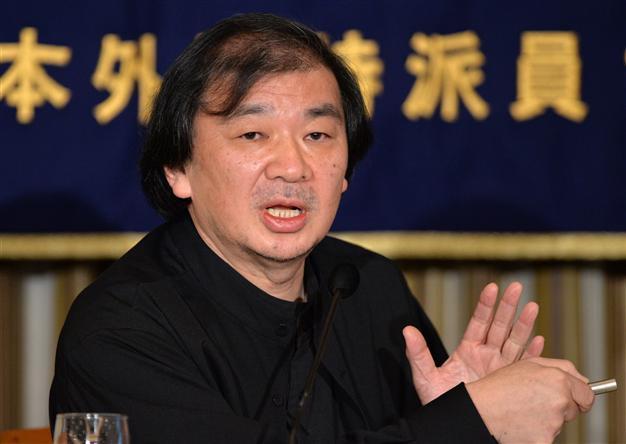Architects should work for the poor, says Pritzker winner
TOKYO - Agence France-Presse

Pritzker Architecture Prize winner Shigeru Ban speaks during a press conference in Tokyo on April 2, 2014. AFP Photo
The Japanese architect awarded the industry's top prize said Wednesday he wants to work not only for the privileged but for the less well-off, as he unveiled his latest social housing project."When I became an architect I was very disappointed about professional architects," said Shigeru Ban, who was awarded the 2014 Pritzker Architecture Prize last week for his work using cardboard to make temporary housing for refugees and disaster victims.
"Actually we are mostly working for privileged people, people with money and power," he told reporters in Tokyo.
Doctors and lawyers serve the poor as well as the rich, Ban said. "So I thought architects, too, we have other social roles."
Ban, who works in disaster zones and with private clients, has spent about two decades travelling the world to help design low-cost but dignified housing and community buildings in hard-hit areas.
His best-known works included a paper cathedral in earthquake-hit Christchurch in New Zealand and temporary housing in Japan, following the 2011 quake-tsunami disaster, made from cardboard tubes.
"I thought we can use our experience and knowledge to work for the public, even the people who lost their houses in natural disasters... That is why I started doing this," he said Wednesday.
"And I try to make my own balance working for the privileged, because I have to work for them to make money," he said.
His latest projects include the development of temporary homes using materials produced in developing countries, which he says should create jobs and alleviate housing problems in poorer parts of the world.
The new housing, which is intended to be both comfortable and economical, will be made from foam walls covered with fibreglass, with the Philippines earmarked as the site of the first factory, he said.
















